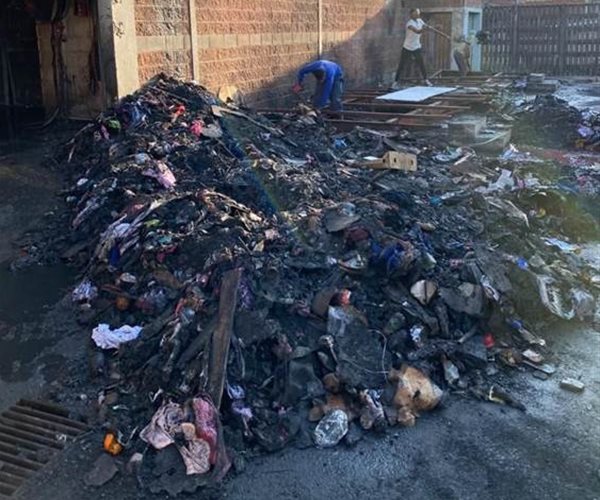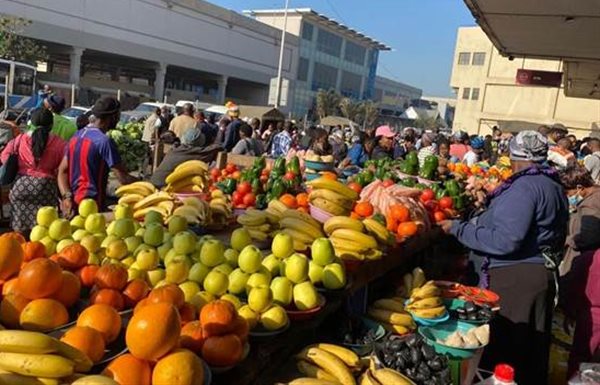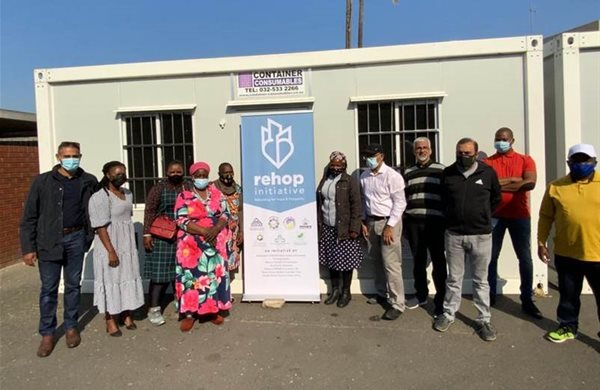Several Muslim organisations have joined forces as part of the Rebuilding for Hope and Prosperity (Rehop) initiative to rebuild part of the Isipingo Market south of Durban, which was destroyed during the recent unrest that devastated parts of KZN and Gauteng.

Source: Supplied
The group is lending support to rebuild the market, which is central to the very fabric and history of the area south of Durban, and to improve the lives of Isipingo’s fruit and vegetable hawkers who for decades have worked cheek by jowl providing an invaluable and affordable service to the local community.
Some of the organisations forming part of the initiative include the Association of Muslim for Accountants and Lawyers, the Growing Hands Enterprise Development NPC, Minara Chamber of Commerce, Muslims for Humanity, National Awqaf Foundation of South Africa, South African Muslim Charitable Trust and United Ulama Council of South Africa.
Spokesperson for the group, Shabir Chohan, said that micro-business were marginal profit enterprises that provided a basic income, and that without these enterprises the owners and their families would face bleak prospects for the future. “With this in mind, we decided on a strategic intervention where we could have the most socio-economic impact, not just on the hawkers, but on the community as well,” he said.

Source: Supplied
Micro-finance model
According to Chohan, the assisting organisations – which have immediate access to accounting, legal, business, finance, humanitarian and even pastoral skill sets – would be focusing initially on a micro-finance model comprising of grants, loans and commercial funding for qualifying candidates.
“It is at grassroots where we feel the work has to be done. The funding of the hawkers gives them the opportunity to start up again, and to contribute positively to the economic recovery of the area.”
Chohan added that the reestablishment of a section of the vibrant Isipingo Market would allow the Rehop Initiative to upskill and empower the traders as well. “This is a golden opportunity to help them grow beyond what they were before. Maybe some of them can even become big business owners one day,” he said.

Source: Supplied
He emphasised that the initiative was being conducted via strategic partnerships, adding that partnerships were the key to recovery. He said the eThekwini authorities, the fruit and vegetable suppliers, financial institutions and experts were all on board working towards the same goal of uplifting the market.
“We will be using micro-finance models which will not overwhelm the traders, and together with our experts, will take them hand-in-hand through all the processes of empowerment,” he said.
Creating social cohesion
Chohan added that Rehop had already managed to obtain two shipping containers that were delivered on-site on Saturday, 31 July 2021 and serves as a temporary office in place of the permanent office which was petrol bombed and gutted in the process, he said.
“We are totally committed to rebuilding our city. We have to create the social cohesion that is the fabric of stability. We see this Rehop Initiative as an imperative, and by taking one step at a time, we hope to contribute to the emergence of a new dawn where all South Africans can feel safe, secure in the knowledge that they have a future,” he said.




































